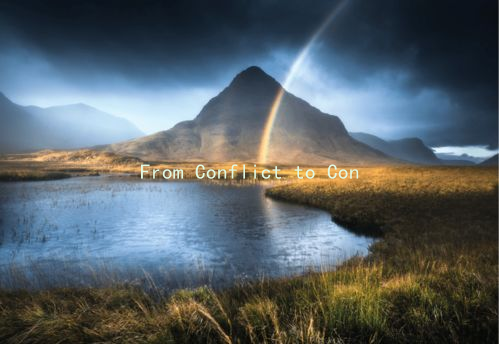From Conflict to Connection: Conversation Skills to Heal Your Relationship
From Conflict to Connection: Conversation Skills to Heal Your Relationship
In any relationship, conflicts are inevitable. However, it is not the conflict itself that determines the health of a relationship, but how both partners navigate and resolve these conflicts. Effective conversation skills are essential tools that can transform misunderstandings into deeper connections. Here are some key techniques to help you move from conflict to connection.
1. Active Listening
One of the most critical skills in any conversation is active listening. This means fully concentrating on what your partner is saying instead of planning your next response. Show that you are heard by nodding, maintaining eye contact, and providing verbal affirmations like I see or I understand.
Active listening also involves reflecting on what your partner has said. For instance, you might say, It sounds like you’re feeling hurt because your needs arent being met. This not only shows that you are paying attention but also validates their feelings, fostering a sense of empathy and understanding.
2. Use I Statements
When conflicts arise, its easy to fall into a pattern of blame and criticism, which can escalate tensions. To avoid this, practice using I statements instead of you statements. For example, instead of saying, You never listen to me, try saying, I feel ignored when I’m speaking, and it makes me feel like my opinions don’t matter.
I statements allow you to express your feelings without directly accusing your partner, which can help lower defenses and open up a more constructive dialogue. This technique encourages personal ownership of emotions and helps your partner understand your perspective without feeling attacked.
3. Stay in the Present
It’s common during conflicts for past grievances to resurface, leading to a cycle of blame and resentment. To maintain a productive conversation, focus on the current issue at hand. Acknowledge any past feelings but redirect the conversation to finding solutions for the present situation.

If the discussion veers into past arguments, gently steer it back by saying something like, “I understand that we have had issues in the past, but I really want to discuss how we can improve things now.”
4. Practice Empathy
Empathy is vital for healing and connection. Make a genuine effort to understand your partner’s feelings and perspective, even if they differ from yours. You might say, I can see why you would feel that way based on your experience. By expressing understanding and compassion, you create a safe space where both partners feel valued and heard.
This practice not only strengthens emotional bonds but also facilitates more productive problem-solving. Partners who feel understood are often more willing to compromise and work collaboratively towards a solution.
5. Explore Solutions Together
Once both partners feel heard, it’s time to move towards solutions. Approach this step collaboratively by asking open-ended questions, such as, “What do you think would be a good way to address this issue?” or “How can we work together to make sure both of our needs are met?”
Encouraging joint problem-solving not only empowers both partners but also reinforces the idea that you are a team. Make sure to acknowledge and appreciate any solutions or compromises your partner suggests, which can build further trust and cooperation.
6. End on a Positive Note
Finally, after discussing the conflict, strive to end the conversation positively. You might recap what you’ve agreed upon or share something you appreciate about your partner, such as, I really value your perspective, and I’m grateful we could talk about this. This reinforces a sense of connection and sets a constructive tone for future discussions.
In conclusion, transitioning from conflict to connection requires practice, patience, and skill. By actively listening, using I statements, staying present, practicing empathy, collaboratively exploring solutions, and ending positively, couples can not only resolve conflicts but also strengthen their relationship. Remember, it’s not just about solving problems; it’s about deepening the bond with your partner and building a healthy, supportive relationship together.





